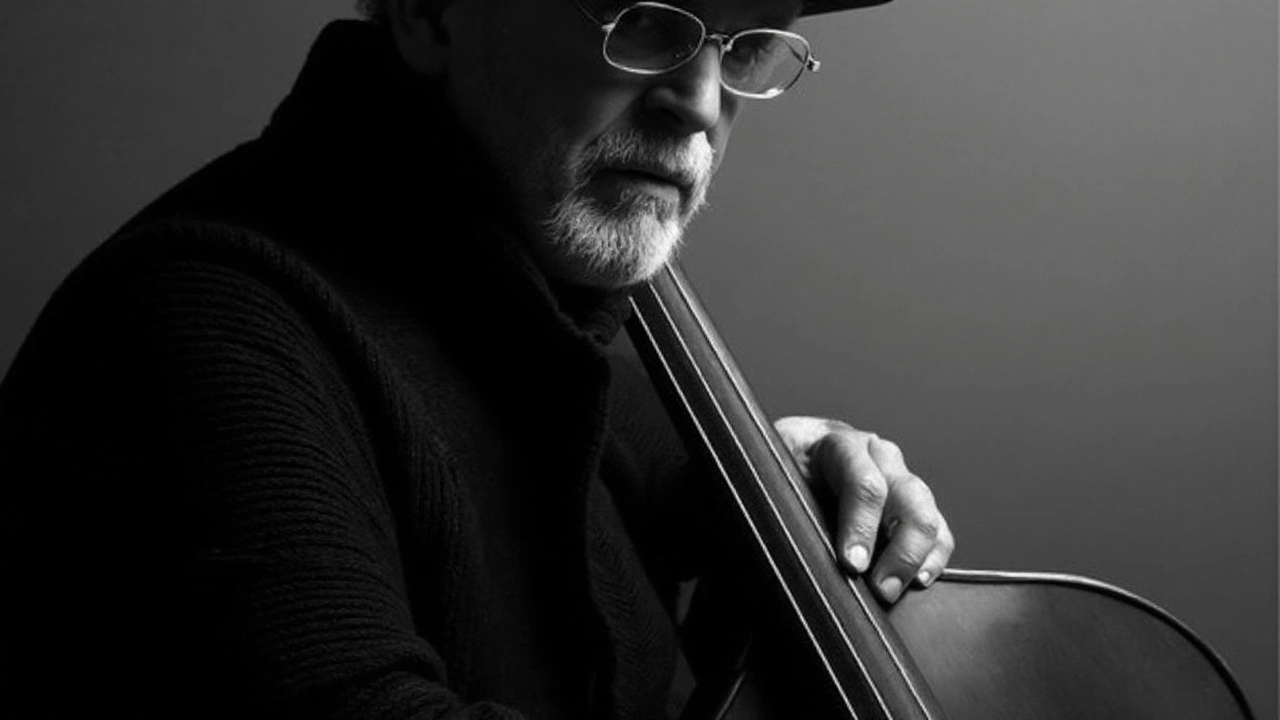Danny Thompson, Legendary Pentangle Bassist, Dies at 86
 Sep, 25 2025
Sep, 25 2025
Early Life and Rise to Prominence
Born on April 4, 1939, in the coastal town of Teignmouth, Devon, Danny Thompson grew up with a piano in the hallway and a love for rhythm that would later define his career. By the age of 16, he was already earning a living playing gigs in Soho’s bustling club scene, a testament to both his talent and relentless work ethic. A two‑year stint in the British Army took him to Penang, Malaysia, where he swapped his bass for a trombone in the army band, sharpening his ear for different timbres and ensemble dynamics.
When he returned to England in 1963, the British music landscape was humming with change. Thompson’s ability to slide seamlessly from acoustic double‑bass to electric bass made him a hot commodity. One of his first high‑profile assignments was a tour with rock‑and‑roll legend Roy Orbison. The tour’s opening acts famously included a fledgling Beatles, placing Thompson at the crossroads of several historic music moments.
His reputation as a reliable, inventive player grew quickly. Session work in London’s studios introduced him to an eclectic roster of artists, and by the mid‑60s, his name was whispered in both folk and jazz circles. The experience he gathered during those early years laid the groundwork for what would become a career marked by genre‑defying collaborations.
A Legacy Across Genres
1967 marked a watershed moment when Thompson teamed up with guitarist John Renbourn, vocalist Jacqui McShee, drummer Terry Cox, and the iconic guitarist‑songwriter Bert Jansch to form Pentangle. The band’s fusion of traditional British folk, blues, jazz, and psychedelic rock resonated worldwide, and their debut album, *The Pentangle*, is still cited as a blueprint for modern folk‑rock. Thompson’s resonant, melodic bass lines provided the glue that held the group’s diverse influences together, earning him the moniker of “bass foil” for his ability to complement rather than dominate.
Beyond Pentangle, Thompson became a first‑call bassist for some of the most visionary artists of the era. His work with John Martyn in the late 1970s, especially on albums like *Grace and Danger*, showcased a deep, almost telepathic musical conversation that pushed the boundaries of folk and jazz improvisation. Collaborations with Kate Bush on *Never for Ever* and *The Dreaming* revealed his knack for adding subtle, textured undercurrents to avant‑pop compositions.
Nick Drake’s tender acoustic ballads benefited from Thompson’s warm, supportive bass, most notably on the melancholic *Five Leaves Left*. The seamless blend of Drake’s whisper‑like vocals and Thompson’s understated groove created an intimacy that still moves listeners today. In the rock arena, his contributions to Peter Gabriel’s *So* and Talk Talk’s *The Colour of Spring* added depth to mainstream hits without sacrificing artistic integrity.
Thompson’s jazz credentials ran just as deep. Sessions with Tubby Hayes and Stan Tracey placed him among the greats of the British jazz scene, where his improvisational flair and rhythmic precision were highly prized. Even the world of television felt his influence; the iconic *Thunderbirds* theme featured his bass, a quirky footnote that illustrates how his work seeped into popular culture far beyond the concert hall.
Colleagues and friends have repeatedly described him as a “force of nature” and “a player who served the song.” Management statements after his passing highlighted his humility: a musician who never sought the spotlight but let the music speak for itself. This ethos earned him unwavering respect across diverse musical communities, from folk clubs in Cornwall to jazz festivals in London.
Personal life remained largely private, yet those close to him speak of a man who cherished family and friendships. He is survived by his wife Sylvia, who has been a steady presence throughout his touring years, and his son Dan Junior, who carries forward the family’s love of music. Their support, according to tributes, grounded Thompson amid a whirlwind career that spanned six decades.
As news of his passing spreads, the outpouring of tributes underscores the magnitude of his impact. Artists across genres have taken to social media, sharing stories of late‑night sessions, spontaneous jam‑downs, and the quiet moments when Thompson’s bass would lift a song from good to unforgettable. His death is not just the loss of a musician but the closing of a chapter in British music history—a chapter that blended folk storytelling, rock energy, and jazz sophistication into a single, resonant voice.